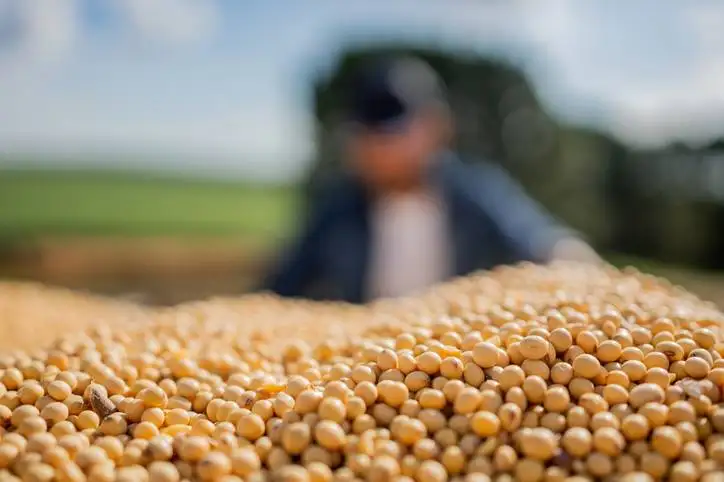ADM acquires a soybean and corn processing facility in Hungary to meet growing European and Middle Eastern demand for non-GMO food and feed products.
ADM Expands Non-GMO Footprint with Acquisition of Hungarian Processing Plant
Introduction
Agribusiness giant ADM is strengthening its position in the non-GMO market with the acquisition of a soybean and corn processing facility in Komárom, Hungary. The facility, which processes soybeans and corn germ into meal and oils, is set to enhance ADM’s ability to serve the growing demand for non-genetically modified (non-GMO) food and feed products. With non-GMO preferences rising among European consumers, ADM is investing in infrastructure to expand its offerings and ensure it meets market demands in Europe and the Middle East.
Acquisition to Bolster Non-GMO Product Offerings
ADM’s acquisition of the Komárom-based facility is expected to be finalized in the coming months, pending regulatory approval. Built in 2010, the facility employs 38 staff and generated €114 million in revenue in 2023. The site processes soybeans and corn germ into meal and oil products, primarily serving European and Middle Eastern markets. This acquisition represents a strategic move for ADM as the company aims to boost its capabilities in the non-GMO sector, where demand continues to grow.
Sebastian Kuck, ADM’s general manager of EU soybean crush, highlighted the importance of this acquisition in addressing the growing demand for non-GMO products. “With increasing global concerns around food security and sustainability, demand for non-GM products is rising. In a European survey, 60% of consumers said they preferred non-GM labeling on products,” said Kuck. “ADM is investing to ensure we can meet this growing demand.”
ADM’s Non-GMO Expansion in Europe
The acquisition of the Komárom facility is part of ADM’s larger strategy to expand its non-GMO soybean offerings across Europe. ADM already operates non-GMO soybean processing facilities in Becej, Serbia, as well as Straubing and Mainz in Germany. These facilities enable ADM to serve a broad range of customers in the food, feed, pet, and oil markets.
According to Kuck, the growing interest in non-GMO products is driven by consumer preferences for sustainability and transparency. This aligns with ADM’s ongoing investments in regenerative agricultural practices and non-GMO supply chains. “Our growing footprint in the European non-GM soybean segment also supports our farmer suppliers by offering an outlet for a much-needed value-added crop, which can help with crop rotation and provide a platform from which to enhance their regenerative agricultural practices,” said Rene van der Poel, ADM’s commercial manager.
With this acquisition, ADM aims to solidify its position as a leading supplier of non-GMO products, particularly as new EU deforestation regulations take effect. These regulations are pushing companies to adopt more sustainable practices and source products that align with environmental and ethical standards.
Germany’s Thriving Non-GMO Market
The German market, one of Europe’s largest non-GMO sectors, saw record sales of non-GMO products in 2023, reaching €17.4 billion. The Ohne GenTechnik (non-GMO) seal, introduced in 2009 and managed by the German Association for Food without Genetic Engineering (VLOG), has played a crucial role in driving consumer trust and demand for non-GMO items.
Non-GMO milk and dairy products dominated German consumer spending in 2023, accounting for €11.9 billion (68%) of the total non-GMO sales. Poultry meat products generated €3.4 billion (20%), eggs contributed €1.5 billion (9%), and other products made up €0.5 billion (3%). Notably, the sales of non-GMO eggs experienced the highest growth, rising 12.3% compared to the previous year.
ADM’s investment in non-GMO soybean production will allow the company to further penetrate this lucrative market. With German consumers increasingly prioritizing transparency and sustainability in their food choices, ADM is well-positioned to benefit from the rising demand for certified non-GMO products.
Meeting Global Demand for Sustainable Products
As consumer preferences shift toward sustainably produced, non-GMO food and feed, companies like ADM are capitalizing on these trends to expand their market presence. The acquisition of the Komárom facility aligns with ADM’s long-term strategy to provide sustainable, value-added products that cater to environmentally conscious consumers.
“We are committed to investing in facilities and supply chains that support the production of non-GMO food and feed products,” said Kuck. “By expanding our operations in Hungary, Germany, and Serbia, we are better equipped to serve our customers and meet the growing global demand for products that align with sustainability and food security priorities.”
ADM’s continued investment in non-GMO products is also helping farmers adopt regenerative agricultural practices, contributing to more sustainable food production systems worldwide. As the market for non-GMO products continues to grow, ADM is positioning itself as a leader in the field, ensuring that its products meet both consumer preferences and regulatory requirements.
Conclusion
ADM’s acquisition of the Komárom processing facility in Hungary is a strategic move that strengthens its foothold in the non-GMO food and feed market. With increasing demand for non-GMO products across Europe and the Middle East, this acquisition enables ADM to scale up its production capabilities and better serve its customers. As the company continues to expand its non-GMO footprint across Europe, ADM is well-positioned to meet the growing global demand for sustainable and transparent food products, particularly as new regulations come into effect and consumer preferences continue to evolve.

